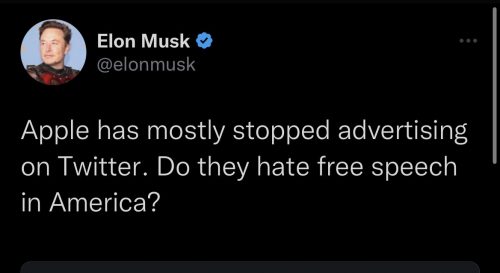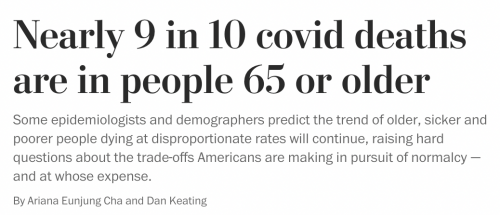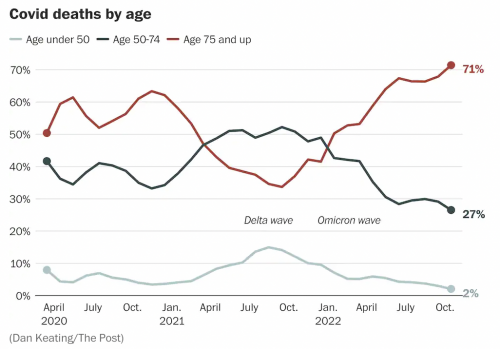As the general exodus from Twitter continues, new alternatives have been springing up. I’m using Mastodon, but I’ve also been seeing some attention paid to another option, an app called Post. I know nothing about it, but I was willing to give it a try, until I read more about where Post comes from. The article was more about a tech journalist, Kara Swisher, who has been a cheerleader for Elon Musk until recently, when she’s been trying to bury her past sycophancy in a memory hole.
Swisher also recently pushed people toward a new social network called “Post,” a site backed by Andreessen Horowitz. You may remember A16Z from last year, when they attempted to pump and dump worthless social network Clubhouse, while also aiding in the direct harassment of Washington Post reporter Taylor Lorenz (who was at the New York Times at the time). Worse still, on an episode of her Pivot podcast she admitted that she’s an advisor in Post, and that her co-host Scott Galloway is an investor. From what I can see, Swisher was pushing people toward a product – on November 17, and again November 21 – that she would only reveal her involvement with four days later.
Post has recently gained attention for claiming to “allow users to read premium news from multiple publishers,” only to offer you the chance to pay for news that is otherwise free elsewhere. And up until recently, Post had intimated that it was against their Terms of Service to make fun of people for their net worth.
Post cries for a return to civility, where the public squares are not quite as public and the powerful are not quite as criticized. Swisher benefits by being one of the biggest new names on a platform, hedging her bets against Twitter (note: Andreessen Horowitz financed part of the Twitter deal and general partner Sriram Krishnan temporarily helped out Musk in his first days at the company) at the time when it’s most convenient to do so.
It’s also a naked attempt by venture capital to recreate the world in their image, and it proves – as has been proven, as will be proven again – that these people have no idea how normal people act or what they want.
I guess I won’t bother with Post, then. Venture capitalists can get fucked.
Less novel, the article also has a nice rant against Elon Musk.
As I’ve related above, Musk has been an irascible shithead for many years, but his overwhelming clout with the media meant that he could, effectively push through any idea his little mind desired. A flamethrower? Sure. $420 Tequila? Of course. Landing humans on Mars? He said 2022, but everybody was fine with saying “within five years” or “2029.”
Musk has gotten away with a mixture of half-truths and outright lies enough times that he believed that he had the popularity to do anything, another condition afflicted upon those with billions of dollars. When he bought Twitter, I truly think that he believed everybody would be behind him, because up until that point most of the media had been. Kara Swisher gave an interview in May about how smart Elon was. Jessica Lessin of The Information described the acquisition as “like watching a business school case study on how to make money on the internet.” Hell, he was able to con banks and investors into raising $13 billion for him. Musk still had the ability to manipulate the media – and still does, in the sense that he can still get a bunch of stories about literally anything he does – but couldn’t change the reality that he did not have a plan for the website that he tied his entire financial future to.
That’s why he seems so utterly pathetic. Musk may have had no plan, but he also appears to have never considered the eventuality that most people would dislike his choices. For someone supposedly tuned into “the future,” he continually fails to adapt to his changing circumstances, picking and losing fights and taking that as proof that his cause is just rather than his ideas being bad. And now his closest allies are wobbling sycophants like David Sacks, who accidentally ended up on the right side of the antitrust debate in an attempt to kiss up to his boss.
What we are likely seeing is society turning its backs on the ultra-rich, and are beginning to see that being able to spend a lot of money does not make someone smart, right or just. The common narrative of the abusively powerful is that they are victims, and that victimization is key to their narrative – except the last three years have chewed through much of the sympathy that a regular person would have for anyone with a billion dollars. It used to be convenient to kiss up to these people – comfortable, even – but “having a billion dollars” no longer guarantees that someone is worthy of adulation.
Many, but not all, journalists have given Musk a free pass for years — I guess they were seduced by the prospect of access to a person with more money than sanity. The rest of us, including me, saw right through him, but then there wasn’t a chance we’d get any money from him, or even a dinner invitation. I am glad to see his reputation shrivel now, though.














